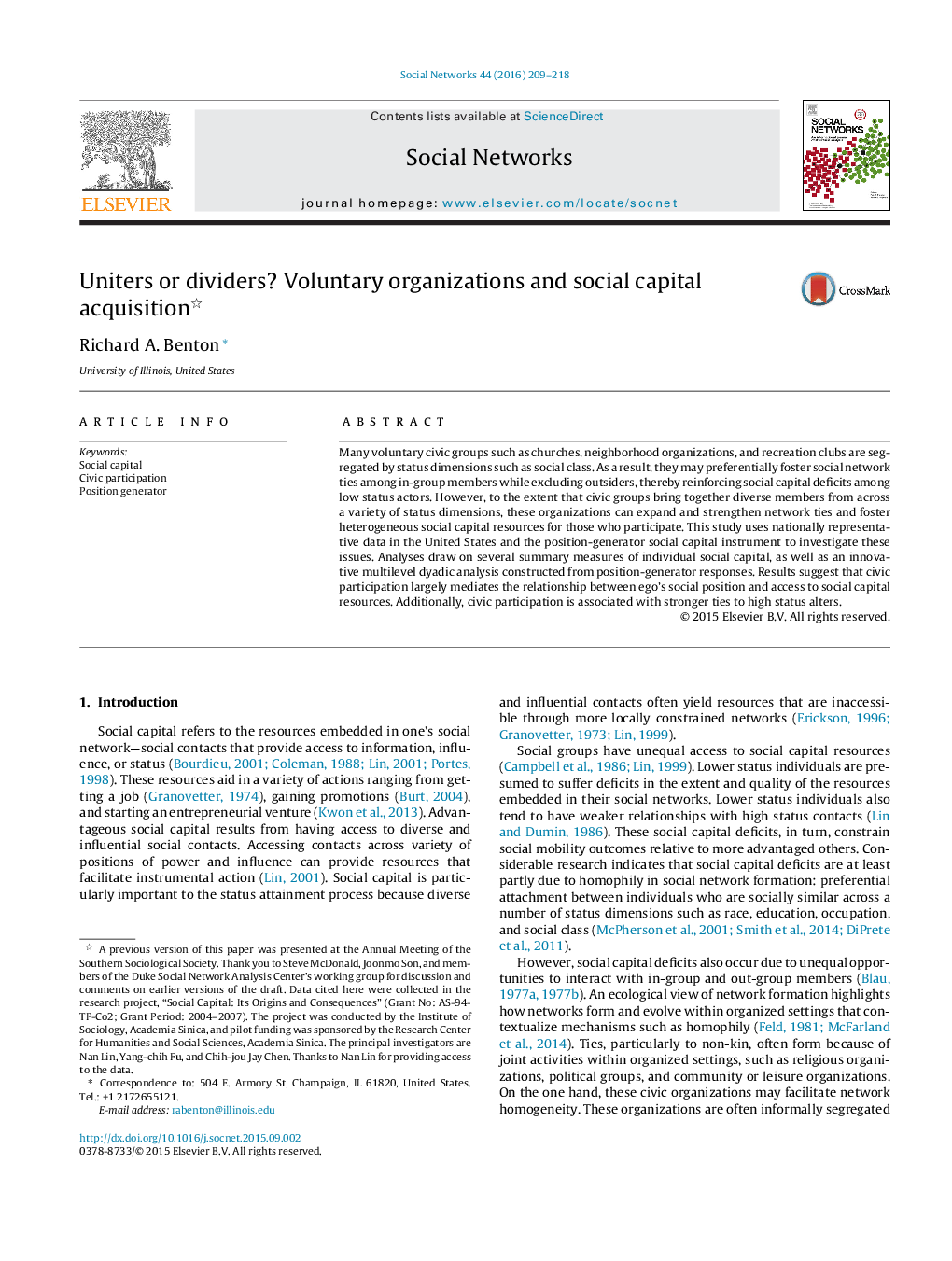| Article ID | Journal | Published Year | Pages | File Type |
|---|---|---|---|---|
| 7538588 | Social Networks | 2016 | 10 Pages |
Abstract
Many voluntary civic groups such as churches, neighborhood organizations, and recreation clubs are segregated by status dimensions such as social class. As a result, they may preferentially foster social network ties among in-group members while excluding outsiders, thereby reinforcing social capital deficits among low status actors. However, to the extent that civic groups bring together diverse members from across a variety of status dimensions, these organizations can expand and strengthen network ties and foster heterogeneous social capital resources for those who participate. This study uses nationally representative data in the United States and the position-generator social capital instrument to investigate these issues. Analyses draw on several summary measures of individual social capital, as well as an innovative multilevel dyadic analysis constructed from position-generator responses. Results suggest that civic participation largely mediates the relationship between ego's social position and access to social capital resources. Additionally, civic participation is associated with stronger ties to high status alters.
Related Topics
Physical Sciences and Engineering
Mathematics
Statistics and Probability
Authors
Richard A. Benton,
